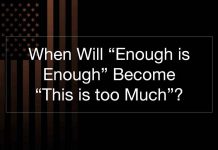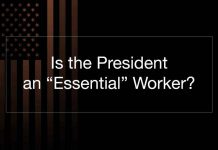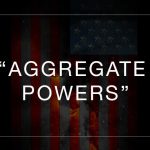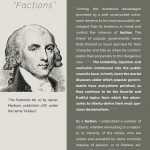Last Updated on September 17, 2021 by Constitutional Militia
(iii) In sum, a patriotic President (and Secretary of the Treasury) could require both the Federal Reserve regional banks and the member banks of the Federal Reserve System to exchange Federal Reserve Notes for gold and silver coin of the United States. As noted above, the Federal Reserve regional banks—of which the member banks of the System are stockholders—were originally required to redeem their notes in gold. In addition, from the beginning they were granted, and still enjoy, the power “[t]o deal in gold coin and bullion at home and abroad, to make loans thereon, exchange Federal reserve notes for gold, gold coin, or gold certificates, and to contract for loans of gold coin or bullion”. Act of 23 December 1913, § 14(a), 38 Stat. at 264, now codified at 12 U.S.C. § 354. Therefore, under Section 30 of the Federal Reserve Act implemented through and otherwise coupled with 12 U.S.C. § 95(a), a patriotic President could require the Federal Reserve regional banks which the member banks control, as well as the member banks themselves, to exchange Federal Reserve Notes for gold for the benefit of “the people” of this country. Inasmuch as neither Section 30 of the Federal Reserve Act nor 12 U.S.C. § 95(a) precludes adding silver to this requirement, the banks can be assigned the further power to deal in silver to the same extent as they may deal in gold, and the further duty to exchange Federal Reserve Notes for silver to the same extent that they exchange those Notes for gold. It is, of course, true that a statute declares that “[t]he United States may not pay out any gold coin”. 31 U.S.C. § 5118(b). Whether this statute is constitutional or not is a moot point, however; for neither the Federal Reserve regional banks nor the member banks of the Federal Reserve System qualify as “the United States”.
As a practical matter, whatever regulations the President finally approved under 12 U.S.C. § 95(a) would have to establish definite units of gold and silver which the banks were to employ with respect to exchanges of those metals for Federal Reserve Notes. The original Federal Reserve Act did not explicitly set a rate of exchange between Federal Reserve Notes and gold, because that rate was implicitly determined in the statutory definition of a “gold dollar” at 23.22 grains (0.0484 ounces) of gold per “dollar”. Thus, at that time a Federal Reserve Note promising to pay (say) “20 dollars” had to be exchanged for (redeemed with) “20 dollars” worth of gold, which amounted to 0.9675 ounces of that metal. Today, in order to take advantage of the latest technology in the area of so-called “electronic gold” and “electronic silver”, the units of weight subject to exchange for Notes should be the grain of gold and the grain of silver—and all possible multiples thereof, including decimal fractions (0.1, 0.01, 0.001, and so on). To conform to constitutional and statutory requirements, however, these weights should still be valued in “dollars”, with one “dollar” in silver containing 480 grains of that metal, and one “dollar” in gold containing 480 grains of that metal multiplied by the exchange-ratio between gold and silver then-existing in the free market.
Although (as noted above) the original Federal Reserve Act provided implicitly for a rate of exchange between Federal Reserve Notes and gold, it did not fix that rate unalterably, but in its Section 30 left entirely to Congress the right, power, and privilege to redetermine the rate howsoever future circumstances might warrant. And, indeed, in the early 1930s Congress removed the requirement for redemption of those Notes in gold altogether, so that the rate of exchange thereafter became, and still remains, zero. AN ACT To protect the currency system of the United States, to provide for the better use of the monetary gold stock of the United States, and for other purposes, Act of 30 January 1934, CHAPTER 6, § 2(b)(1), 48 Stat. 337, 337, now codified at 12 U.S.C. § 411. Revealingly, no one ever challenged the elimination of redemption of Federal Reserve Notes in gold as unconstitutional—for the self-evidently sound reason that Congress had explicitly reserved the plenary right to do so when redemption was originally included in the Federal Reserve Act. So today, under Section 30 of the Federal Reserve Act implemented through and coupled with 12 U.S.C. § 95(a), a patriotic President and Secretary of the Treasury could require the banks to adopt whatever rates of exchange between Federal Reserve Notes and gold, and between those Notes and silver, the President and the Secretary believed would “preserve for the people the full benefits of the currency system provided for by the Congress”. And that requirement embodied in a regulation today would be just as constitutional as was either the initial requirement of redemption of Federal Reserve Notes in gold in the statute of 1913, or the removal of that requirement in the statute of 1934.
Nonetheless, today everyone with any financial insight at all realizes that it would be economically impossible for the banks to redeem Federal Reserve Notes in gold at the fixed rate of exchange employed in 1913 and 1934; and no less impossible for them to redeem those Notes in an equivalent fixed amount of silver. Therefore, to ease their transition from a system of effectively fiat paper currency to one of economically sound and constitutional money, the banks should be allowed to exchange Federal Reserve Notes for the ever-varying amounts of gold and silver for which those Notes exchange in the free market from day to day. The success of such a transition, of course, would depend upon a properly functioning free market—for the preservation of which the President and the Secretary of the Treasury would need to promulgate specific regulations to dissuade and prevent bankers and their cronies in the underworld of high finance from attempting, directly or indirectly, to manipulate the gold and silver markets, and to punish them in truly exemplary fashion should deterrence fail. Overall, the banks should not be heard to complain, because this arrangement would be far less onerous as to them than were the traditional requirements that bank notes be redeemed with precious metals at statutorily fixed rates of exchange.
To put the new system of exchange into practice, the regulations under 12 U.S.C. § 95(a) should require all of the member banks of the Federal Reserve System which conduct operations in each State, together with the particular Federal Reserve regional bank the statutorily assigned district of which includes that State, to establish and thereafter administer a common gold and silver depository in that State (the ultimate goal being fifty such depositories). The banks would offer all of their customers accounts through which the latter could: (i) exchange Federal Reserve Notes for gold and silver, and gold and silver for Federal Reserve Notes—so that a completely free market for such transactions could function throughout the United States; and (ii) accept deposits of gold and silver from their customers, and make payments in gold and silver to other customers with similar accounts—so that gold and silver could be efficiently employed as actual media of exchange in Americans’ common day-to-day commercial transactions. The costs of maintaining this system would be deemed to be among “the necessary expenses of a Federal reserve bank”, after the payment of which “the stockholders [of such bank, being primarily the member banks in that region] shall be entitled to receive an annual dividend of 6 per centum on the paid-in capital stock”. See Act of 23 December 1913, § 7, [1], 38 Stat. at 258, now codified at 12 U.S.C. § 289. It would be eminently just to impose on the banks the costs for repairing the nation’s banking system along these lines, because the imprudence and even profligacy of the Federal Reserve’s managers (from both the regional banks and the member banks) caused the banking cartel to “go off the gold standard” in the first place.
(b) In order to achieve the second goal of 12 U.S.C. § 95(a)—that is, “to relieve interstate commerce of the burdens and obstructions resulting from the receipt on an unsound or unsafe basis of deposits subject to withdrawal by check”—the new system for exchanging Federal Reserve Notes for gold and silver and for employing gold and silver as common media of exchange through the Federal Reserve regional banks and the member banks of the Federal Reserve System must be secured from the problems associated with “fractional reserves”. To accomplish this, the new regulations must stipulate that: (i) the customers’ deposits of gold and silver are the property of the customers alone, not of the banks to any degree; (ii) the banks may not deal in their depositors’ gold or silver except to transfer ownership from one account to another upon and in strict accordance with their depositors’ orders; (iii) the depositors enjoy first liens on the assets of the banks for the values of their deposits, so that their claims against the banks come before the claims of all other private creditors; and (iv) the depositors’ claims against the banks must be settled in gold and silver only (that is, by specific performance, rather than with “monetary damages” paid in some other currency).
(c) That 12 U.S.C. § 95(a) posits the existence of “burdens and obstructions [on interstate commerce] resulting from the receipt on an unsound or unsafe basis for deposits subject to withdrawal by check”; that it allows for an “emergency period” which “the President of the United States by proclamation may prescribe”; and that it imposes truly draconian penalties upon entities and individuals which and who even for a single day violate the “regulations, limitations and restrictions” to be “prescribed by the Secretary of the Treasury, with the approval of the President”—all plainly indicate Congress’s understanding that America’s national security would be imperilled by a collapse of or other crisis which destabilized the Federal Reserve System. Moreover, inasmuch as the Second Amendment recognizes that “[a] well regulated Militia” is “necessary to the security of a free State” in every State throughout this country, and with respect to every possible type of “security” relevant to freedom; inasmuch as Article I, Section 8, Clause 15 of the Constitution empowers Congress “[t]o provide for calling forth the Militia to execute the Laws of the Union”; inasmuch as Article II, Section 2, Clause 1 of the Constitution invests the President with the status of “Commander in Chief * * * of the Militia of the several States, when called into the actual Service of the United States”; and inasmuch as 10 U.S.C. § 332 provides that, “[w]henever the President considers that unlawful obstructions, combinations, or assemblages * * * make it impracticable to enforce the laws of the United States in any State by the ordinary course of judicial proceedings, he may call into Federal service such of the militia of any State * * * as he considers necessary to enforce those laws”—for all of these reasons taken together, the Militia and only the Militia should be assigned the authority and responsibility to supervise enforcement of the new regulations by which Section 30 of the Federal Reserve Act would be implemented through and otherwise coupled with 12 U.S.C. § 95(a).
After all, dolorous experience in this country for the last hundred years—and especially during the last decade—amply supports the conclusions that:
(i) Particularly with respect to their long-standing opposition to the constitutional monetary system of silver and gold, the banks in the Federal Reserve System, along with their allies in the underworld of high finance, have proven themselves again and again to be “unlawful obstructions, combinations, or assemblages” against the public interest.
(ii) The failure of every attempt to date to bring the banks and their financial partisans to heel demonstrates the impracticality of enforcing the laws of the United States against those parties “in any State by the ordinary course of judicial proceedings”.
(iii) That Congress has exposed the banks to the severe strictures of 12 U.S.C. § 95(a) demonstrates its recognition that, under certain circumstances (which plainly obtain today), the banks may collectively constitute combinations too powerful to be suppressed or otherwise disciplined by any other, less- rigorous means. But,
(iv) Precisely because of their severity and potential efficacy, those strictures will be enforceable to the necessary degree only through deployment of the Militia—which, being composed of the American people themselves, alone can supply sufficient personnel who cannot be coöpted or compromised by the banks.
For the purpose of enforcing Section 30 of the Federal Reserve Act as implemented through and coupled with 12 U.S.C. § 95(a), the President could with confidence as well as propriety call upon members of the so-called “unorganized militia”. See 10 U.S.C. § 311(b)(2). See, e.g., Code of Virginia §§ 44-1 and 44-4. I use Virginia as an example only because I happen to live in the Commonwealth. A quick search of other States’ codes can discover equivalent provisions. (Again, I do not intend to inquire here as to the constitutionality vel non of an “unorganized militia”. Having written extensively on the subject in such books as The Sword and Sovereignty, I leave it to readers of this commentary to recall that printing , both with ink and electrons, has been invented, and that it would behoove them to take advantage of that fact. But once more I must remind my readers that, at the present perilous time, “it takes a crooked stick to beat a mad dog”.)
Because the “unorganized militia” consists of the great bulk of this country’s adult population, it would be no difficult task to find within “such of the militia of any State * * * as [t]he [President] considers necessary to enforce those laws” a superfluity of individuals who had appropriate education, skills, and experience with regard to the information technology, to the supervision of banks and other financial institutions, to accounting, and to the allied disciplines required for the operations of gold and silver depositories as well as the general surveillance and control of the banks in relation to such operations. The Militia could easily supply all of the personnel necessary and sufficient to provide actual day-to-day physical security for and to administer the depositories, as well as to monitor all of the other activities of the banks that were subject to the regulations promulgated under 12 U.S.C. § 95(a). The Militia, more than any other group within society, would have a keen economic interest in seeing to it that the regulations were enforced to the letter.
And because the “unorganized militia” would supply such a huge pool from which the President could draw the necessary personnel, the bankers and their clients in the underworld of high finance would find it utterly impossible to coöpt, corrupt, or coerce enough Militiamen to subvert the Militia’s supervision of the banks anywhere throughout this country. (Observe, too, that, contrary to the criticism labeled against those who advocate revitalization of the Militia, this proposal does not involve, or even suggest, the use of “violence” by the Militia in the performance of their duties.)
Thus, the foregoing provides an answer to one question which should be posed to every candidate for the Presidency in 2016 (assuming that the monetary and banking systems have not already collapsed before then). If a candidate cannot supply this answer or something closely akin to it, he (or she) is plainly unqualified for “the Office of President” even if “eligible to th[at] Office” on the basis of citizenship. The point of this exercise, though, is to be found not in the expectation that any of the candidates the “two” political parties will foist on America will be asked this question (or, if they were, could intelligibly answer it), but in the demonstration that problems such as the question addresses do have solutions ready to hand, if a little thought is applied to the matter.
Perhaps if patriots were to press throughout the alternative media for questions of this kind to be asked and answered, the Presidential election would take on some substance.
©2015 Edwin Vieira, Jr. – All Rights Reserved.



































